In Indonesia, LGBT communities viewed as a moral threat – condemned by religion and, increasingly, by law
- The Muslim-majority nation is using a pornography law to target LGBT people, with public humiliation a ritual punishment
- HIV epidemic feared as homosexual stigma forces many to go ‘underground’, with as much as half of the infected population undiagnosed
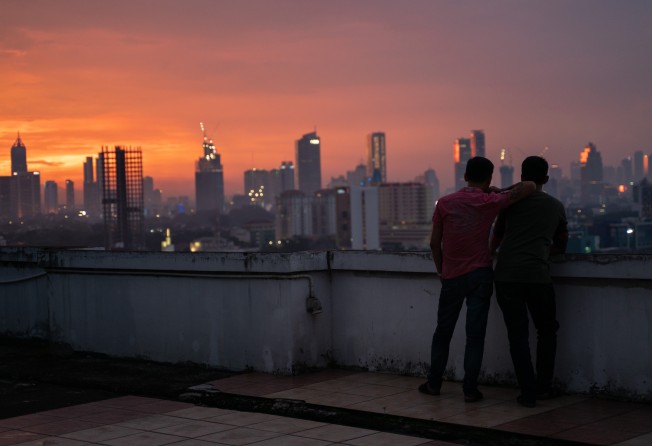
There was a commotion and then there was silence. Many of the guests had gathered around a small stage on which the dancers, and Ezra, were naked. Everyone froze and turned to look at four men wearing fixed, steely gazes.
“This doesn’t feel right,” Ezra recalls thinking. “If they are gay, they are not going to look at us in that way.” Then dozens of policemen stormed the premises.
It was the biggest police raid on a private gay establishment in Indonesia in recent memory. That day, in May 2017, 141 men were arrested at the Atlantis sauna in north Jakarta. It was only after bare-chested images of those who had been detained appeared on the news, along with some of their names, that Ezra’s family became aware he was among them.
Ezra himself was less worried about going to jail than he was about his mother finding out he was gay. “When my mum first visited me she actually had tears in her eyes but she tried to contain it,” he recalls.
Ezra was convicted two months later, together with one other guest, four dancers and four staff from the sauna, under a 2008 pornography law. During the trial, head judge Pinta Uli Boru Tarigan made her opinion clear. “If you were stealing you can still atone and go to heaven. But this one, this is morally wrong,” she said, according to Ezra.
When he was released from prison, in December, Ezra had served a year and five months in the notoriously overcrowded, high-security Cipinang Penitentiary, in east Jakarta, on top of the two months spent in pretrial detention. Now, he struggles to find work.
The Atlantis raid was one of several by authorities and civil vigilantes on gay gatherings in homes, hotels and saunas in 2017. Homosexuality is illegal in Indonesia only in Aceh, a semi-autonomous province in Sumatra that operates under sharia law, but broad interpretations of the pornography law are used to punish homosexual behaviour.
More than 300 people were detained under the law in 2017, according to Human Rights Watch. The trend continued in 2018, with dozens of arrests, usually followed by public humiliation. This “moral” crackdown, fuelled by rising homophobic rhetoric from Islamists and other conservative groups, has been tolerated by the political class in a country that, with about 88 per cent of its more than 260 million people adherents, has the largest Muslim population in the world.
When we meet in a Jakarta coffee shop, Ezra comes across as smart but shy. In his 20s, he has never had a boyfriend – he worries, he says, that he is not handsome enough, about there being too much competition; and anyway, he finds his gay peers shallow.
His mother is supportive but devout. During the time Ezra shared a cell with 10 other men, she told his extended family that he had moved to another city. Now that he is free, he describes his state of mind as “numb” and himself as socially aloof. He is one of countless individuals whose lives have been changed by Indonesia’s LGBT clampdown.
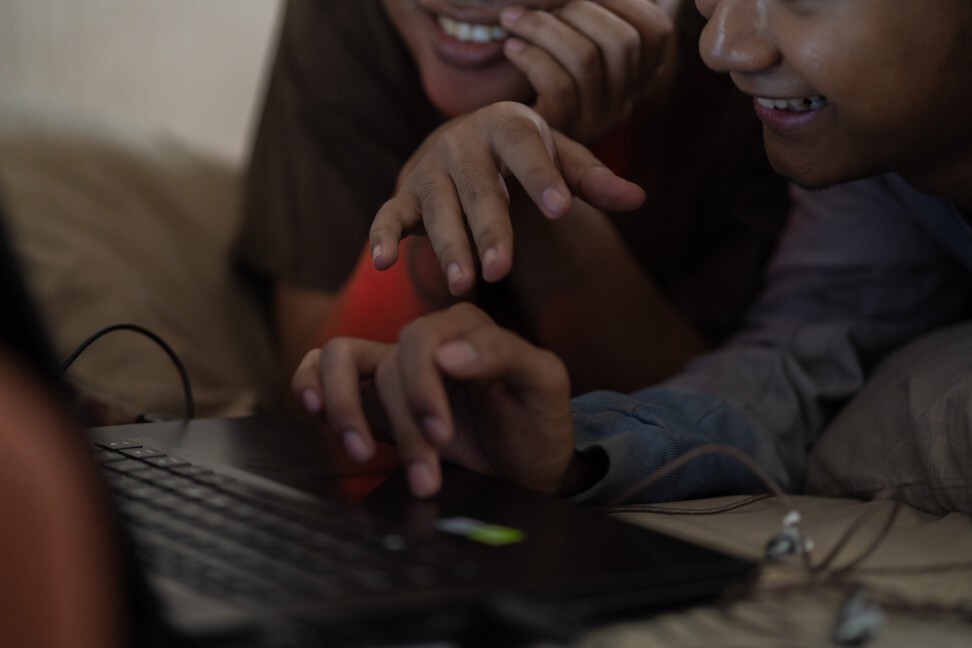
More than a dozen LGBT people in Jakarta were interviewed for this story. Some told Post Magazine they wanted to buy a house and get married, in spite of the fact that same-sex marriage is unlawful in Indonesia. Others talked about political representation and fighting for their rights. Some thought it was better to lay low, or said they did not identify with any group or movement. And despite not wanting to leave, some said they could only fulfil their dreams abroad.
All just wanted normal lives.
Rio is charismatic, feminine and quick to laugh. Together with his boyfriend, Rangga, he has found a measure of stability, living in a flat in central Jakarta. Closed complexes such as the one where Rio and Rangga, both 22, live are a common choice for homosexual couples, affording a level of privacy that is hard to find in the capital’s traditional neighbourhoods. Having been together for more than two years, the pair share a strong mutual understanding, yet still show the affection of new lovers.
Born and raised in Jakarta, Rio grew up in his grandparents’ house, living under the same roof as an abusive uncle who believed the boy brought bad luck to the family. “When I was 10 he put a pillow over my head while I was sleeping and shouted, ‘Die, die,’” Rio recalls. The violent episodes were mitigated by the special connection Rio had with his mother. They were constantly together and would often share their feelings. But his sexuality was never up for discussion.
The persecution is stronger for transgender people because they are visible and can’t deny themselves
Four years ago, Rio’s mother borrowed his tablet, logged into his Facebook account and found out his sexual orientation. She told the whole family. Later, in a moment of rage, she screamed at him, “I wish it was legal to kill you.”
Now, Rio insists he no longer cares about his mother – they are like strangers. “Words cannot be unheard,” he says.
Bisexual and a medical student, Rangga’s siblings are aware of his sexual identity, but his parents – who he describes as moderately religious Muslims – are not. Like many of the interviewees for this article, he pinpoints 2016 as the year that hate speech “spiralled out of control”. In particular, he recalls being shocked when the minister of higher education, Muhammad Nasir, stated that LGBT people should not be allowed on university campuses. Those words were echoed by high-ranking officials and religious leaders, who in the months that followed called for bans on LGBT behaviour and its promotion.
“It’s getting worse, it’s getting more openly threatening,” says Rangga.
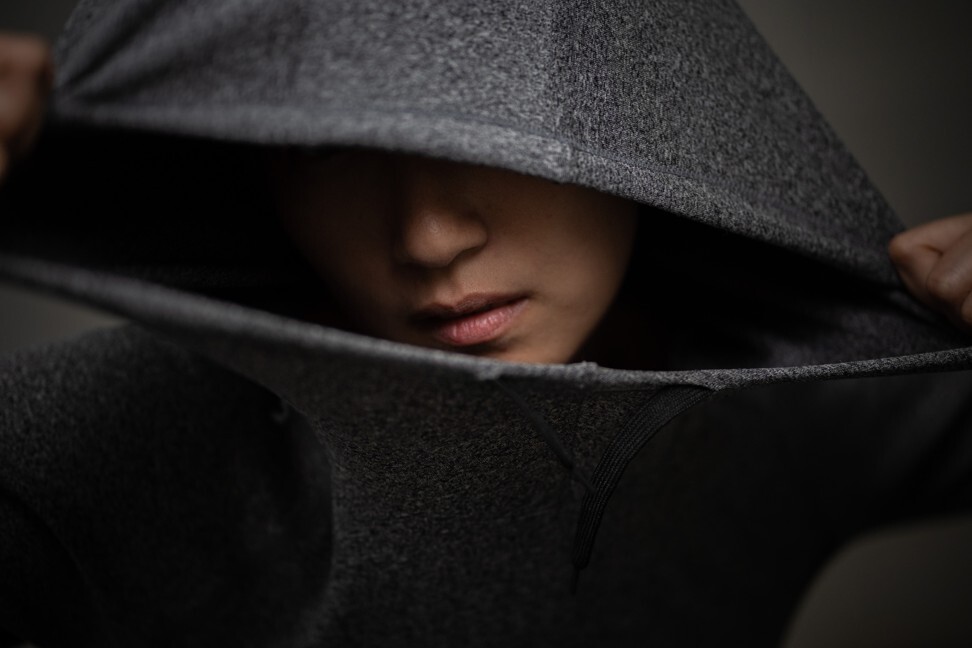
When hate speech turns into action, transgender men – referred to in Indonesia as waria , from the words wanita (woman) and pria (man) – are often the first target, despite having traditionally been accepted as an integral part of the country’s culture, says Merlyn Sopjan, an activist with the Indonesian Planned Parenthood Association.
In November, three transgender women were arrested in Lampung, south Sumatra, and hosed down from a fire engine. It was one of several instances in recent years of extreme public humiliation being meted out with the intention of teaching a moral lesson.
“The persecution is stronger for transgender people because they are visible and can’t deny themselves,” says Sopjan.
Bintang, 34, and Masboi, 32, are practising Muslims who live in Jakarta. Bintang is a woman who says she is unsure whether she is bisexual or lesbian. Masboi, meanwhile, is a transgender heterosexual man who is open about his orientation, not just because, given his masculine looks he couldn’t be mistaken for anything else but also because, “I don’t think I ever doubt myself about who I am.”
My religion maybe will not allow me to do this relationship but deep inside I know this is not that wrong
Bintang was in denial until she kissed a woman for the first time at the age of 28. “It felt so right,” she says. Only her closest friends know about her relationship with Masboi, despite their being serious enough to have talked about marrying abroad.
Religion plays an important role in both their lives, as it does in those of most Indonesians. Bintang says she believes that Islam views her sexual identity as a sin but that she is trying to find a balance. “My religion maybe will not allow me to do this relationship but deep inside I know this is not that wrong,” she says.
Masboi says those who believe holy scriptures call for the punishment of LGBT behaviour are cherry-picking from the text while ignoring the merciful example set by the Prophet Mohammed.
Cultural and religious diversity is fundamental to the Indonesian archipelago and its foundational ideology of Pancasila. Under the Pancasila system, the state recognises six religions: Islam, Catholicism, Protestantism, Buddhism, Hinduism and Confucianism. However, a survey published last year by Saiful Mujani Research and Consulting found that 87.6 per cent of Indonesians viewed LGBT people as a threat and 81.5 per cent believed their behaviour was forbidden by whichever religion they adhered to.
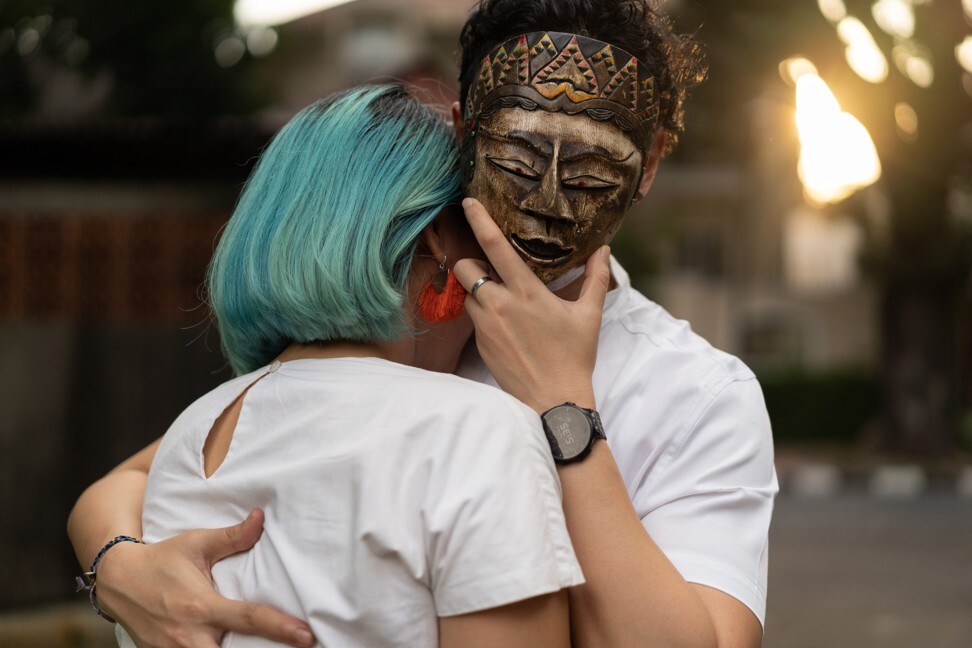
LGBT practices are not justified morally or religiously, particularly in Islam, says Mastuki, head of public relations for the Ministry of Religion. “It doesn’t mean that LGBT must be rejected, shunned, cursed or even avoided. In this case the approach of religion is, how we can invite them to return to the right path,” explains the official, who is also a lecturer and a higher-education consultant.
One of the few voices arguing that the classical interpretation of the Koran is unduly patriarchal and heteronormative is Muslim scholar Aan Anshori, who says he is seeking “a fair understanding of LGBT in science and religion”. But his views have often seen him shunned, he says, and he believes blacklisted by some universities.
Stephen Suleeman, a protestant pastor who teaches at the progressive Jakarta Theological Seminary, is another religious figure who is calling for tolerance. Since 2011, Suleeman has been running LGBT programmes that convey the message “we can accept them as who they are”. However, attendance is down in the face of a rising tide of moral panic. “[Politicians] cannot retreat from what they said and the hatred remains there,” says Suleeman.
Growing up in the city of Semarang, in the north of Java island, the son of a conservative family of Muslims, Catholics and Confucians, Dondu was bullied as a teenager for his sexual orientation. The only thing that stopped him committing suicide, he says, was his dream of leaving the city, which he did at the age of 24, when he moved to Jakarta.
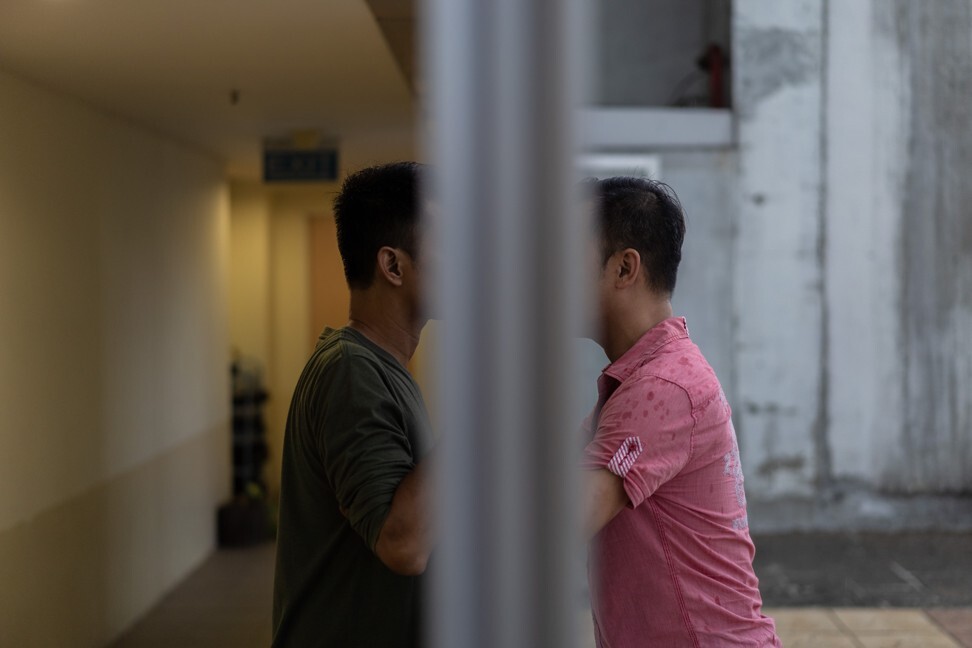
When Dondu was in his mid-20s and living in the capital, an aunt discovered he owned a gay pornographic movie. She spread the word and most of the family stopped talking to him. A couple of years later they tried to arrange a heterosexual marriage for him – it was their last attempt at a “cure”.
Tee is more outspoken than Dondu and their personalities complement one another. Both in their 40s, they plan to have a family. When the couple began dating, eight years ago, Tee already knew he was HIV-positive. The diagnosis was devastating but he is still healthy and Dondu remains virus free. “He is the one always reminding me about my schedule for taking medicines before we go to sleep,” says Tee, who is ethnic-Chinese Indonesian.
The linking of LGBT people with HIV threatens to derail the fight against the epidemic in Indonesia. With half of the infected population undiagnosed, according to 2018 estimates by the Joint United Nations Programme on HIV/Aids (UNAids), the country has the lowest percentage of HIV-positive individuals who are aware of their status in Southeast Asia.
The criminalisation of LGBT people, and violence and discrimination towards them, only makes combating the disease more difficult, says Krittayawan Boonto, director of UNAids for Indonesia. “You’re not doing anything on prevention, you’re not putting out the information widely about how to prevent HIV, you’re pushing people underground. This is a recipe for a growing epidemic, not a controlled one,” she says.
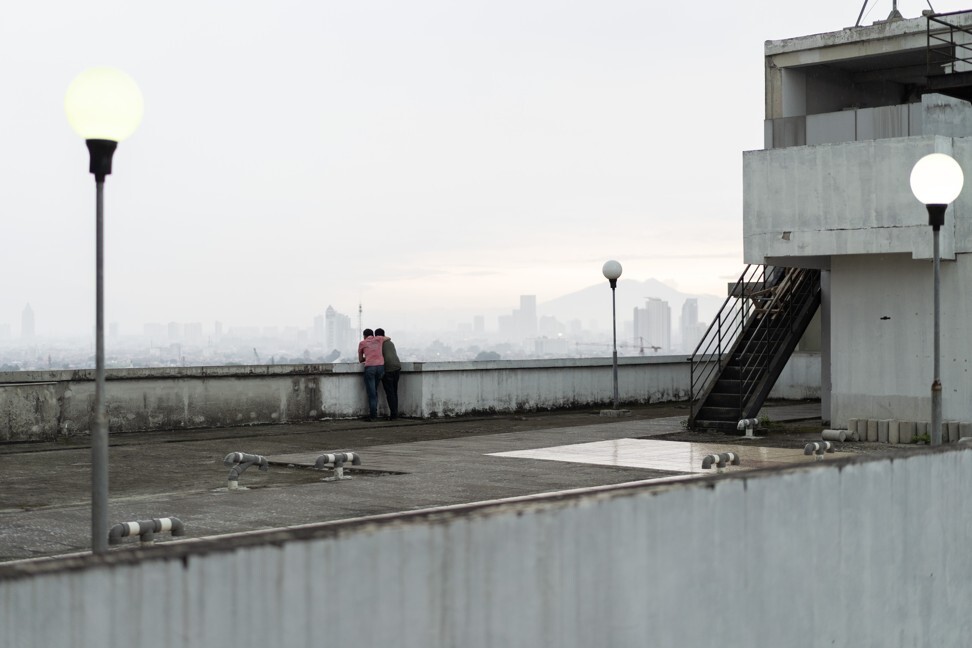
New HIV infections peaked in Indonesia in 2006, with more than 60,000 cases. By 2018, that number had fallen to 45,729. HIV exposure through sex between men, though, has risen: in 2005, only 10 per cent of new cases were in men who’d had sex with other men; that proportion had risen to 25 per cent last year; and, UNAids estimates, that figure will top 30 per cent in 2023.
The stigma of the virus is not only affecting lives, it is taking them, too. Many in Indonesia who contract the disease put off telling their families until it is too late to receive potentially life-saving treatments, says Boonto. Homosexual men often take refuge in heterosexual marriages and spread the disease to their wives and children. Most homosexual men interviewed for this story said they knew more gay people living in heterosexual relationships of convenience than with a same-sex partner.
Indonesia is currently immersed in the election campaigns of President Joko Widodo and his opponent, former army general Prabowo Subianto. As in previous elections, the LGBT issue has been wielded as a populist weapon. Videos posted on social media by Prabowo supporters warn that if Widodo is returned to power in next week’s polls, a blow will be struck against Islamic tradition and the recognition of gay marriage will follow.
No party will publicly come out against homophobia, which would probably be electoral suicide.
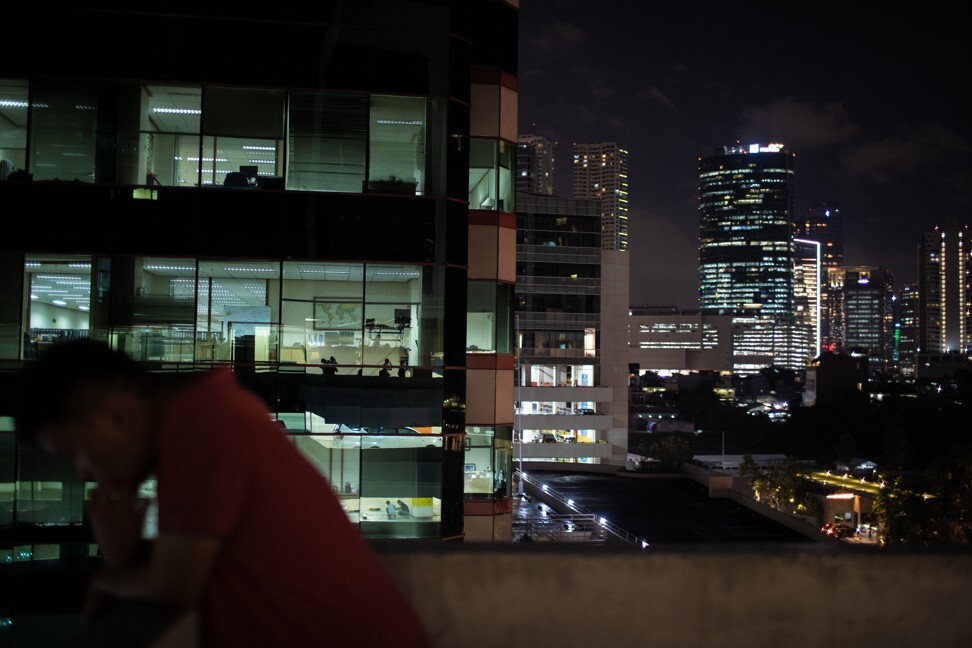
Last year, concerns over the proposed criminalisation of LGBT behaviour, outlined in a leaked draft of a revised criminal code that is being deliberated in the House of Representatives, triggered strong opposition from civil rights groups and international human rights organisations. The draft was expected to have been approved ahead of the presidential and legislative elections, which will take place on the same day, but stalled following the controversy.
Arsul Sani, a member of the Islamic United Development Party – part of the Widodo coalition – sits on the commission charged with reviewing the revised criminal code, which was drawn up to replace the penal code inherited from the Dutch. The current draft, he says, will criminalise “obscene behaviour” regardless of any sexual orientation, but he also admits that a proposal by his party seeks to prohibit LGBT promotion.
Muhammad Nasir Djamil, who belongs to the Islamic Prosperous Justice Party, and the Prabowo coalition, also sits on the commission and is in favour of anti-LGBT measures. “We have to protect the country from destructive influences and protect citizens from these negative influences,” he says. He wants a punitive approach to dealing with “obscene homosexual behaviour”, but does not elaborate on precisely what should constitute obscenity.
Meanwhile, Ezra, who was convicted of indulging in obscene behaviour, protests that all he was doing when he was arrested was dancing. He blames the legislature and its wording of the pornography law, which leaves it open to interpretation, for his misfortune.
“I feel like I have to accept the fact that I’m a criminal because I was arrested, because I was sentenced,” he says.
The names of all LGBT people interviewed for this story have been changed to keep their identity anonymous. LGBT has been used instead of the more inclusive LGBTQ+ in the story because the former is the most widely used term in Indonesia to address non-normative gender and sexual identities.